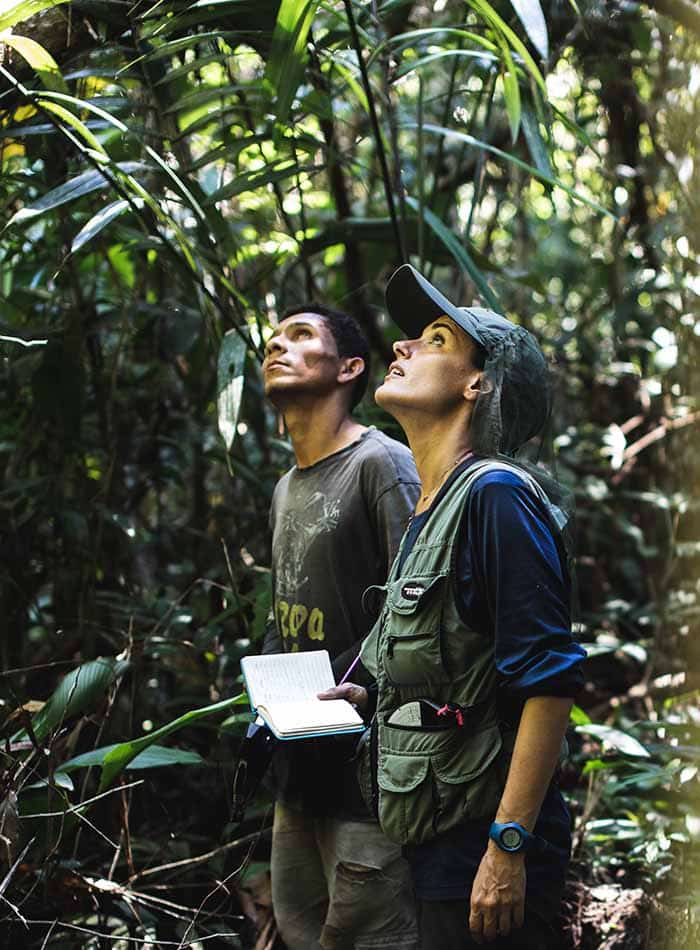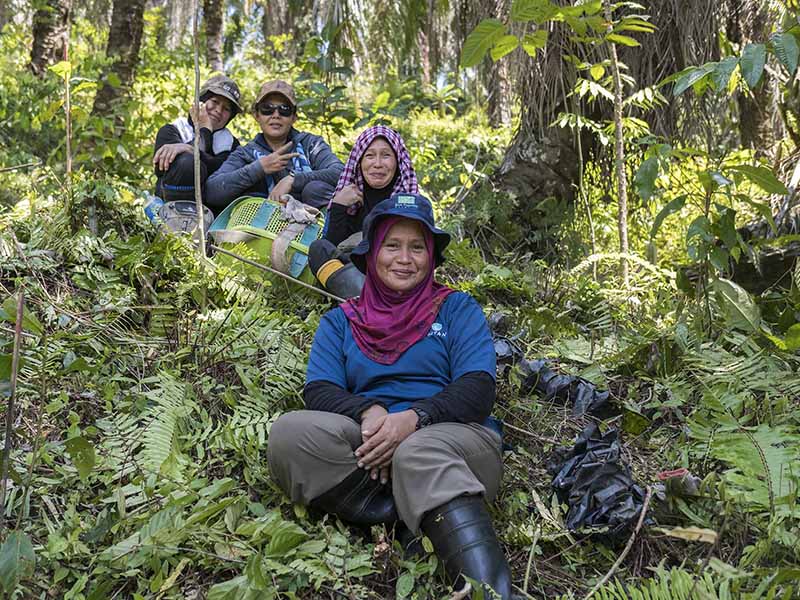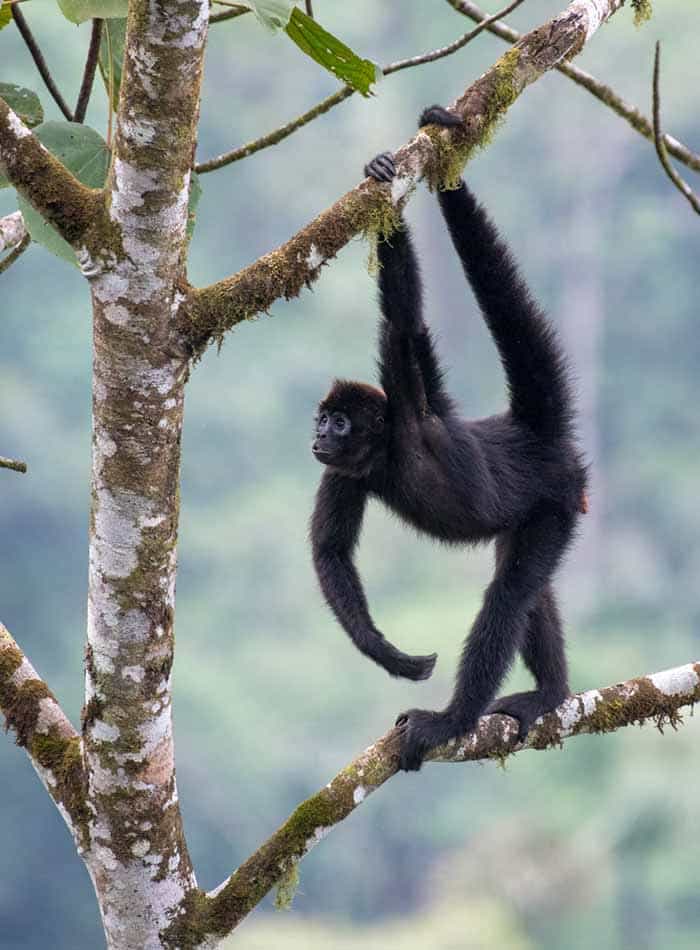Our More than Carbon partners
Synchronicity Earth works with locally-led organisations to identify terrestrial and marine partners addressing degraded habitats and overlooked carbon stores. To date, our More than Carbon initiative has provided funding totalling more than USD 950,000 to three locally-led organisations, targeting the triple ‘win’ of biodiversity conservation, climate change mitigation, and improved community livelihoods.
Forest degradation and fragmentation present major threats to the long-term survival of biodiversity in the Kinabatangan floodplain, a part of Borneo that has already lost 80 per cent of its natural forest to palm oil plantations. The forests that remain are home to many unique plants and animals, but they are highly fragmented, making them vulnerable to further degradation, which also isolates wildlife populations, leaving them at risk of imminent extinction.
HUTAN undertakes its mission to conserve the Bornean orangutan through a holistic, multi-faceted approach. It carries out survey and monitoring work for orangutans; it creates solutions for better management of palm oil plantations; it works with local communities to create innovative mechanisms where local development is compatible with long-term conservation of orangutans and their habitat; it regenerates degraded forests, and it works to influence wider policy in Sabah Province.
Instituto Juruá is a non-profit organisation formed by conservationists and researchers in close partnership with community leaders and local associations along the Juruá River, in the heart of Brazil’s Amazon rainforest.
Instituto Juruá provides financial and technical support for community-based initiatives of natural resource management along the Juruá River, Brazil, and offers capacity building opportunities for local communities to help them sustainably manage their natural resources and protect their territory. The team conducts groundbreaking scientific research, implements pioneering conservation projects and offers game-changing education and training opportunities.
Instituto Juruá works with local organisations to design and implement community-protected lakes and fluvial beaches along the Juruá River. This work benefits local populations of commercially valuable pirarucu, also called arapaima, and freshwater turtles (Podocnemis spp), while increasing food security and sovereignty, income generation, infrastructure, and capacity-building opportunities of local communities.



